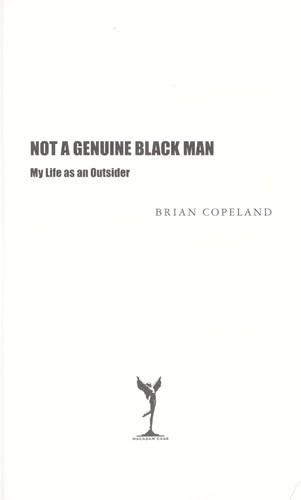250 pages
English language
Published April 4, 2008 by Macadam Cage.

250 pages
English language
Published April 4, 2008 by Macadam Cage.
Brian Copeland's memoir shows us the world through the eyes of an 8-yr old black boy and the challenges of growing up black in an all-white neighborhood and school. He never really got to relax and enjoy his childhood because life was pretty much a war zone for him. His absentee father would show up and verbally abuse him, as did potentially anyone he came in contact with. So he had no role model; he had to grow up too soon and become the man of the house. The protector of his mother and younger sisters. No one was in his corner. Teachers feared uprisings or job loss for taking up for him. As he got older he learned how to mask his fears and to use humor to cover up the painful past. The book also delves into mental illness. When suffering from tearful outbursts for no apparent reason, …
Brian Copeland's memoir shows us the world through the eyes of an 8-yr old black boy and the challenges of growing up black in an all-white neighborhood and school. He never really got to relax and enjoy his childhood because life was pretty much a war zone for him. His absentee father would show up and verbally abuse him, as did potentially anyone he came in contact with. So he had no role model; he had to grow up too soon and become the man of the house. The protector of his mother and younger sisters. No one was in his corner. Teachers feared uprisings or job loss for taking up for him. As he got older he learned how to mask his fears and to use humor to cover up the painful past. The book also delves into mental illness. When suffering from tearful outbursts for no apparent reason, his psychiatrist likened his condition to PTST - Post-traumatic Stress Disorder. Dealing with that after all these years has made him a stronger person, and one who can reach out to help others. The book is a huge eye-opener. It is a heartwrenching read. But his humorous writing provides the foil needed to keep the reader from throwing down the book and drowning in despair and shame for what injustices blacks went through in order to get out of the ghetto and to have a productive, satisfying, prosperous life. While race is a big part of the book, Copeland insists his story is more about being an outsider and what skills outsiders can use to "cope" in a "land" of insiders.--Brenda Beasley, Cataloger, from interview with the author.